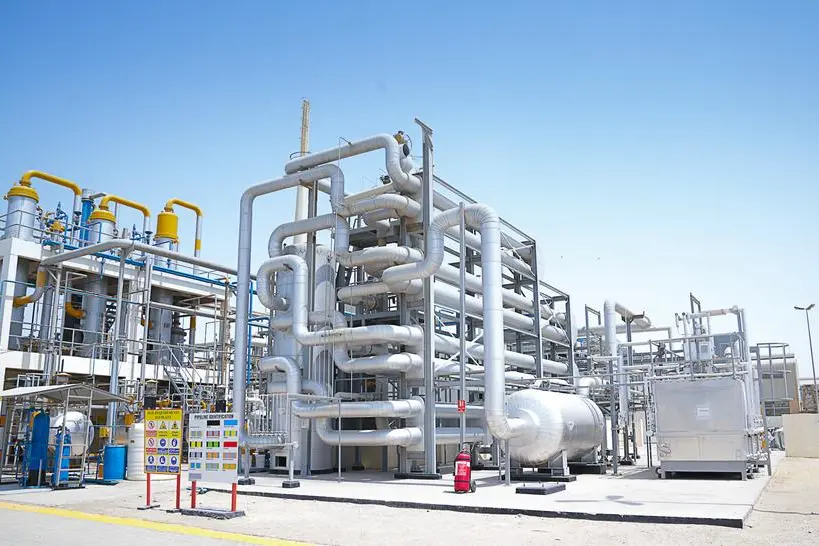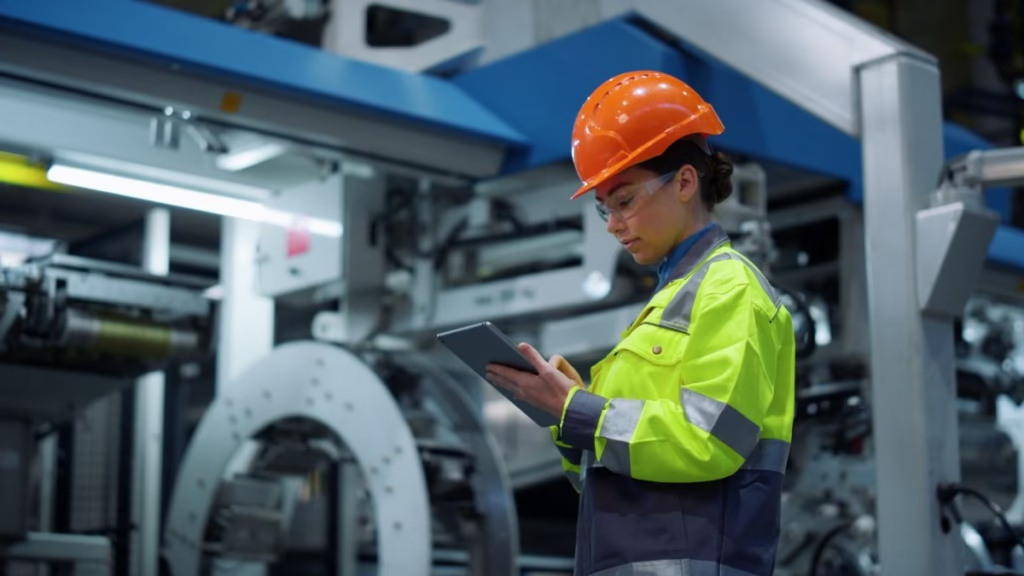UAE national strategy advanced manufacturing is revolutionizing the country’s industrial landscape. By focusing on innovation, technology adoption, and sustainability, the United Arab Emirates aims to establish itself as a global leader in advanced manufacturing. This national strategy not only strengthens the country’s industrial base but also promotes economic diversification, job creation, and technological excellence.
As global competition intensifies, the UAE recognizes that investing in advanced manufacturing technologies such as robotics, additive manufacturing, artificial intelligence (AI), and smart factories is essential to maintaining economic resilience and international competitiveness.
Understanding UAE National Strategy Advanced Manufacturing
Advanced manufacturing refers to the use of innovative technologies and processes to improve production efficiency, quality, and flexibility. Unlike traditional manufacturing, which relies heavily on manual labor and conventional machinery, advanced manufacturing integrates:

- Automation and robotics – Enhancing speed and precision.
- Artificial intelligence (AI) and machine learning – Optimizing production processes.
- Additive manufacturing (3D printing) – Enabling rapid prototyping and customized products.
- IoT and smart sensors – Monitoring operations in real-time for efficiency.
- Sustainable practices – Reducing waste and energy consumption.
By leveraging these technologies, the UAE aims to create a competitive and technologically advanced industrial sector that can meet both domestic and global demand.
Key Goals of UAE’s National Strategy for Advanced Manufacturing
The UAE’s national strategy for advanced manufacturing is guided by several objectives designed to position the country as a global hub for innovation:

1. Economic Diversification
Reducing dependence on oil revenues is a primary goal. By investing in advanced manufacturing, the UAE aims to strengthen its industrial sector and generate new revenue streams.
2. Technology Adoption and Innovation
Encouraging the use of robotics, AI, and smart factories allows UAE manufacturers to increase efficiency, improve product quality, and develop innovative solutions for local and global markets.
3. Workforce Development
The strategy emphasizes upskilling the workforce to meet the demands of advanced manufacturing. Training programs, STEM education, and partnerships with international institutions ensure that skilled talent is available for high-tech industries.
4. Sustainable Industrial Growth
The UAE integrates sustainability into its manufacturing strategy, promoting energy efficiency, resource optimization, and reduced environmental impact.
5. Global Competitiveness
By adopting state-of-the-art technologies and innovative practices, the UAE seeks to attract international investors and position itself as a leading manufacturing hub in the Middle East.
Pillars of the UAE National Strategy for Advanced Manufacturing
1. Smart Factories and Industry 4.0
The UAE is implementing Industry 4.0 concepts in its factories, integrating IoT, cloud computing, and data analytics to create connected, automated, and intelligent production lines. Smart factories improve operational efficiency, minimize downtime, and enable predictive maintenance.
2. Research and Development (R&D)
The strategy emphasizes R&D to foster innovation and technological breakthroughs. Partnerships between universities, research centers, and private companies support the development of new materials, processes, and manufacturing technologies.
3. Additive Manufacturing (3D Printing)
3D printing is being adopted across multiple sectors, including aerospace, healthcare, automotive, and construction. This technology enables rapid prototyping, cost reduction, and customized product manufacturing, boosting competitiveness.
4. Robotics and Automation
Robotic systems are deployed to enhance production accuracy, reduce labor-intensive tasks, and increase throughput. Automation also improves workplace safety and operational consistency.
5. Artificial Intelligence and Data Analytics
AI and advanced analytics optimize production schedules, predict maintenance needs, and enable intelligent decision-making. Real-time insights reduce waste, increase productivity, and enhance product quality.
6. Sustainable Manufacturing Practices
The UAE focuses on environmentally friendly manufacturing through renewable energy integration, efficient resource management, and eco-design. Sustainability ensures long-term economic growth while minimizing environmental impact.
Industry Sectors Benefiting from Advanced Manufacturing
The UAE’s national strategy targets multiple industrial sectors to drive innovation and competitiveness:
- Aerospace: Advanced materials, additive manufacturing, and precision engineering enhance the aerospace sector’s global standing.
- Healthcare and Pharmaceuticals: Innovative production techniques and smart devices improve healthcare delivery and manufacturing efficiency.
- Automotive: Automation, robotics, and smart factories boost automotive manufacturing capabilities.
- Construction and Infrastructure: 3D printing and robotics streamline building processes, reducing costs and time.
- Energy and Renewable Technology: Advanced manufacturing supports clean energy technologies and equipment production.
Government Initiatives Supporting the Strategy
The UAE government is actively supporting advanced manufacturing through policies, incentives, and strategic programs:
- National Advanced Manufacturing Program: Provides funding, technical support, and infrastructure for high-tech manufacturing projects.
- Smart Dubai and Industrial Clusters: Smart cities and industrial zones integrate digital technologies into manufacturing operations.
- Public-Private Partnerships: Collaboration with global firms fosters knowledge transfer and accelerates technological adoption.
- Education and Talent Development: Scholarships, technical training programs, and research initiatives equip the workforce with necessary skills.
- Regulatory Support: Policies facilitate innovation, protect intellectual property, and encourage investment in high-tech industries.
Challenges and Opportunities
Challenges
- High Initial Investment: Advanced manufacturing technologies require significant capital for equipment and training.
- Workforce Adaptation: Upskilling employees to work with AI, robotics, and smart systems is crucial.
- Cybersecurity Risks: Connected manufacturing systems must be protected from cyber threats.
- Supply Chain Integration: Adopting smart manufacturing requires harmonization across local and global supply chains.
Opportunities
- Global Market Expansion: High-tech manufacturing capabilities open doors to export opportunities.
- Innovation Leadership: Pioneering advanced technologies enhances UAE’s reputation as a hub for innovation.
- Sustainable Growth: Eco-friendly manufacturing aligns with global sustainability goals and attracts investment.
- Resilience and Flexibility: Smart factories adapt to market changes faster, enhancing competitiveness.

Case Studies and Success Stories
1. Emirates Advanced Manufacturing Hub
This hub focuses on robotics, AI-driven production, and 3D printing to serve aerospace and healthcare industries.
2. Dubai Industrial City Smart Factories
Integration of Industry 4.0 technologies has increased operational efficiency, reduced waste, and improved product quality.
3. Khalifa Industrial Zone Abu Dhabi (KIZAD)
KIZAD supports high-tech industries with advanced manufacturing infrastructure, attracting international investors and creating high-skilled jobs.
Future Outlook
The UAE’s national strategy for advanced manufacturing is expected to transform the industrial landscape by:
- Expanding high-tech manufacturing capabilities across multiple sectors.
- Driving economic diversification and reducing dependency on oil revenues.
- Creating employment opportunities in STEM and high-tech fields.
- Establishing UAE as a global hub for innovation and industrial excellence.
- Promoting sustainable and environmentally friendly industrial practices.
By continuously investing in technology, workforce development, and innovation, the UAE is positioned to lead the Middle East in advanced manufacturing while setting global benchmarks for industrial excellence.
Conclusion
UAE national strategy advanced manufacturing is more than a policy—it is a transformative approach to building a resilient, innovative, and sustainable industrial ecosystem. Through the integration of AI, robotics, 3D printing, and smart factories, the UAE is creating a competitive edge in global markets. Government support, public-private partnerships, and workforce development are critical enablers of this vision.
As the country moves forward, advanced manufacturing will not only drive economic growth and diversification but also strengthen UAE’s position as a global innovation leader, paving the way for a technologically advanced and sustainable future.
Do follow UAE Stories on Instagram












